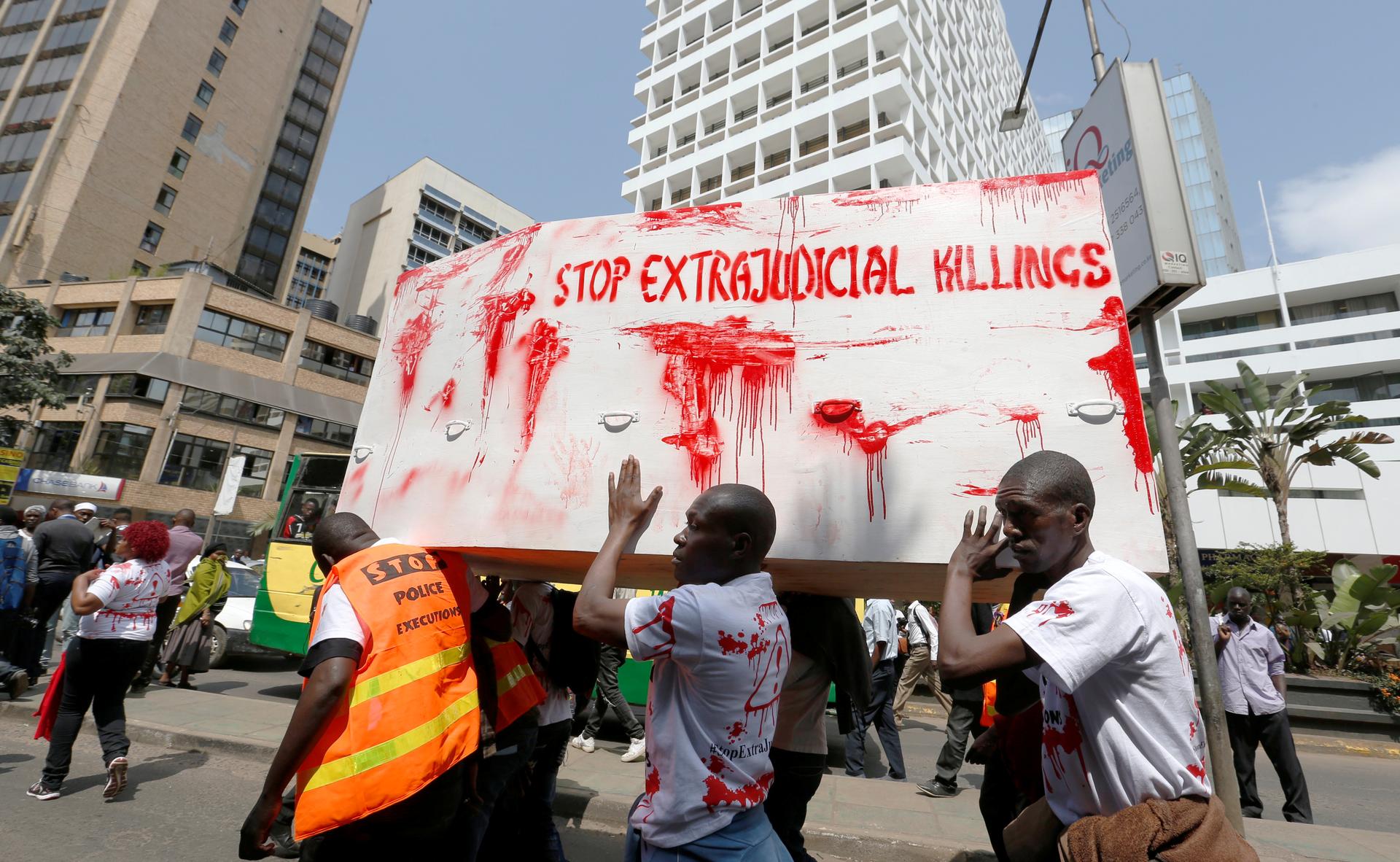Demonstrators carry a symbol of a coffin stained with red paint as they chant slogans during a protest after the killing of a human rights lawyer, his client and their driver in Nairobi, Kenya, on July 4.
In Kenya, a public protest movement against unlawful police killings is gathering pace, after the torture and murder of a lawyer and two other men allegedly at the hands of the police.
According to BBC correspondent Tomi Oladipo, public anger over police violence and corruption has been growing for some time. A survey by Transparency International Kenya found that those questioned rated the police as the country's most corrupt institution. Another nongovernmental watchdog, Independent Medico-Legal Unit, says the Kenyan police killed 97 people in 2015 alone.
The angry public found a focus in the death of human rights lawyer Willie Kimani, his client and their taxi driver earlier this year. Kimani was representing Josephat Mwendwa, a motorcycle taxi driver who alleged police had shot and injured him in April.
Soon after appearing in court on June 23, both men disappeared. Their bodies and that of a taxi driver were later found in a river northeast of Nairobi, bearing signs of torture.
So far four officers have been arrested but not charged with involvement in the crime.
The deaths and suspected links to the police have prompted a wave of demonstrations across the country. Some protesters carried a fake coffin for Kimani, covered in red paint to represent his blood.
According to Oladipo, the Kimani case is unusual but highlights the very real impunity of the Kenyan authorities. “Kenya has been known to have had a history of extrajudicial killings for some time, but they have not really come into the limelight until recently [with Kimani’s case],” he says.
“This has now become a platform for people to talk about all the other cases of killings where police target people, particularly in slum areas.”
We want to hear your feedback so we can keep improving our website, theworld.org. Please fill out this quick survey and let us know your thoughts (your answers will be anonymous). Thanks for your time!
